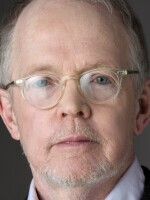NOAH ADAMS, host:
From the studios of NPR West, this is DAY TO DAY. I'm Noah Adams.
DEBORAH AMOS, host:
And I'm Deborah Amos.
Coming up, an overnight debate on Iraq ends in another Senate stalemate.
ADAMS: But first, new information is emerging about this week's earthquake in Japan. The damage may be more severe than we'd heard. The quake hit northwestern Japan on Monday, measuring 6.8 in magnitude.
And joining us now with the latest is our DAY TO DAY colleague, Madeleine Brand, who happens to be in that country, working on the series Climate Connections. Madeleine, thank you for joining us.
MADELEINE BRAND: Well, you're welcome. Hi, Noah.
ADAMS: We knew on Monday, Madeleine, there had been some damage to a huge power plant. It's the world's biggest in terms of - nuclear power plant - in terms of output. And there's more news today - more damage information is coming up?
BRAND: Right. They admitted that they erred earlier, when they gave an estimate of how much radioactive water had leaked out of the plant after the earthquake. The plant was damaged quite severely by that earthquake. The electric company said that now the leak into the Sea of Japan is 50 percent bigger than it previously announced. And it also said some 400 barrels of nuclear waste were knocked over inside the plant.
Now, the plant has been shut down. There's an investigation pending. The company is downplaying all this, saying the leaked amount is still, quote, "one billionth of Japan's legal limit." However, the International Atomic Energy Agency is pressing for a thorough investigation. And Noah, this comes amidst a history of cover-ups of accidents at the nuclear power plants the company operates in Japan. And in fact a group of residents sued the government, saying A) that these accidents had been covered up; and B) the government hadn't conducted sufficient safety reviews when it approved the plant back in the 1970s. Now, that suit was thrown out just two years ago for lack of merit by a Tokyo court.
ADAMS: Madeleine, you mentioned the leakage into the Sea of Japan. Where is the plant exactly?
BRAND: It's about 135 miles northwest of Tokyo, a town called Kashiwazaki. It's right on the coast. About 93,000 people live there, many of whom actually work at this nuclear power plant.
And the bigger problem, though, Noah, is that nobody really knows if this power plant is located on a fault line. As you know, Japan is in a very active earthquake area. It straddles four tectonic plates. And the company is saying, well, it's not located exactly on a fault line. It may be near a fault line. But there might be some evidence now, looking into the aftershocks of this latest quake, that in fact this nuclear power plant, as you said earlier, the biggest in the world in terms of output, is located right on a fault line.
ADAMS: So the plant is shut down. The cleanup is going on. The investigation is going on. In the meantime, Toyota is shutting down operations all over Japan because one of their suppliers is also in that city?
BRAND: This is a supplier that makes pistons and camshafts. Japanese automakers - all of them, including Toyota - have halted some production because this production plant has been shut down. This is a very strong quake - 6.8 magnitude. There was a lot of damage in that area. Of course Toyota has supplies to last it several days, so it's not - it probably won't affect production right now, but who knows in the future?
Let me just say one more thing. As you know, we're here doing a series on global warming, our series Climate Connections, as you mentioned in the intro. And it's interesting: part of the research that we're uncovering is that the government just recently announced this new initiative called Cool Earth 50, where they want to reduce carbon emissions by 50 percent by the year 2050.
And part of this plan is relying on nuclear power, because obviously that doesn't emit carbon. And so there's a very rosy scenario painted by the federal government about new generations of safe, clean nuclear power. Now, I can only imagine that after this problem that's happening with this nuclear power plant, that that will be seriously up for consideration.
ADAMS: DAY TO DAY'S Madeleine Brand talking with us from Tokyo. Thank you, Madeleine.
BRAND: Thank you, Noah. Transcript provided by NPR, Copyright NPR.
NPR transcripts are created on a rush deadline by an NPR contractor. This text may not be in its final form and may be updated or revised in the future. Accuracy and availability may vary. The authoritative record of NPR’s programming is the audio record.




